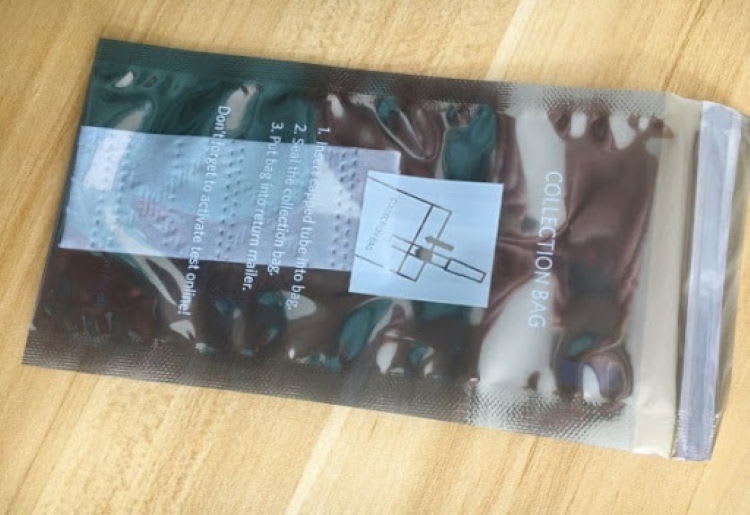But how do you navigate the world of DNA testing? Questions like what type of DNA will be read and is there a difference between the accuracy of cheek swabs versus spit samples may confuse some. The truth is, though, it couldn’t be easier to find the test you need. Let’s break it down.
What are DNA tests?
Deoxyribonucleic Acid, DNA, is the unique genetic source code that makes up who we are. A wealth of information can be extrapolated from your DNA, and giving a sample is as easy as swabbing the inside of your cheek or spitting into a tube.
When you submit a DNA sample to a lab, technicians isolate your DNA and use the information to map out the genetic information that you’re trying to find.
The Single Easiest Way to Discover Where You Came From
One of the big reasons the DNA testing industry has boomed so much in recent years is because it’s just so simple. When you find a company you'd like to use, you simply order a home DNA testing kit which is shipped to your house.
You simply take a DNA sample from your cheek or spit in a tube and then ship the kit back to the company. Then you just kick back and wait, and within a few weeks, or a little more, you’ll have your results.
Why DNA Tests Are Surprisingly Accurate
Certified DNA testing companies can establish paternity with over 99% accuracy. That said, human error can cause mistakes to be made no matter how sophisticated the system in question is.
When performing a DNA test at home there’s always the possibility that someone in your home could tamper with the samples, though a little vigilance can keep this from happening.
There is also a possibility - no matter how remote - that contamination of the samples can take place at the lab, possibly producing false results.
If a DNA test doesn’t examine enough DNA markers the results could be only 99% or 95% conclusive, if not even less.
Make sure when ordering a DNA test that you are using a reputable company that puts a premium on maintaining high standards.
The Unbelievable Secrets You Can Uncover With DNA Tests

DNA testing can help you map the origins of your family tree. Your DNA sample can reveal which parts of the world your ancestors came from, potentially surprising you with results you never would have expected.
Though with many people the results aren’t shocking, countless customers have been pleasantly surprised to find out that their genetic makeup is consistent with parts of the world and ethnicities that they never thought they had any connection to.
AncestryDNA and other industry leaders - takes the ethnic mapping even farther, and compares your DNA to the millions of users in the company database, potentially meaning you may find a relative you match within its database.
DNA testing can also reveal signs of possible future health complications, and with fetuses, it can reveal whether or not a baby will have Down Syndrome.
The results also depend on what type of DNA test you take. A Y chromosome (Y-DNA) test traces your patrilineal ancestry (your father's side), while a mitochondrial DNA test looks at your matrilineal heritage and an autosomal test checks both sides.
DNA tests can be used to establish paternity, and can be so accurate that many are admissible in court, including in custody battles and immigration proceedings.
Paternity can be established not only through the father but also through the father’s parents if he isn’t available, and most companies promise accuracy of 99% or higher.
How to choose a DNA test
What type of DNA test you should order depends on the purposes of your test.
If you’re researching your family roots, the most popular options are autosomal, mitochondrial, and Y-DNA tests. Autosomal tests check 22 out of 23 pairs of chromosomes from both males and females.
However, it becomes less reliable the further you go back, so it’s best for up to 3rd or 4th cousins and for learning information back to you great-great-grandparents.
Mitochondrial DNA tests check mitochondrial strands which both genders inherit from their maternal line. These can be traced much further back than autosomal tests, even as far as a 48th cousin on your mother’s side. These tests can give you a good idea of the region, ethnicity, or family group you descend from.
Like mitochondrial DNA tests, Y-DNA testing can trace your roots back very far, but these tests can only be done by men, as they check the genetic information found in the Y-chromosome.

Another rather novel approach is that of companies like Vitagene. Vitagene’s DNA tests check your ancestral information, and also send you personalized supplement recommendations based on your body’s vital needs and what you may be lacking.
When you order a kit, it also comes with a customized fitness plan and personalized vitamin plan. You can pay more and receive the supplements from the company with your report if you decide to.
Price
Most basic DNA tests hover around $99 per kit, though companies often feature special sales that bring the price down to $59 per kit or less.
Pricing can vary from one DNA test to the next, and whether or not it's worth paying depends on your needs. If you’re looking for a DNA test that can be admissible in court or in immigration proceedings, then you'll need to invest extra in a test that can be legally admissible.
If the test is merely to answer some nagging personal questions you’ve had, then spending extra isn’t necessary.
The consideration on whether or not to take a mitochondrial or autosomal test can also depend on price, as autosomal tend to be the cheapest. If your research needs don’t require such extensive tracking, then the difference in cost can be money wasted.
Also take a look at the shipping costs, which can make a real difference in the overall price. For instance, on MyHeritage, shipping costs $12 per kit, while on Ancestry.com, shipping is $9.95 and then $4.95 for each additional kit.
If you’re buying DNA kits as stocking stuffers for Christmas (this is now a thing), then a few dollars here or there in shipping costs can really add up.
If you’re pursuing a baby DNA test, then waiting until after the baby is born can make a difference in the price. The average prenatal, non-invasive baby DNA test cost $1195 dollars, far more than a post-birth DNA kit.
Postnatal testing can be carried out as soon as the baby is born. It entails collecting a DNA sample from the umbilical cord of the baby at or after delivery. The cord blood sample is then taken and compared with that of the father. A cheek swab, hair, or blood sample can also be used.
Where can I buy a DNA test?

There are more options for DNA testing than ever before, but let’s take a look at some of the industry leaders.
- Best for: searching for long-lost relatives and tracing your family tree
- Results in: 4-6 weeks
- Test type: cheek swab
MyHeritage is an industry leader that offers extensive ancestral testing. You can learn the geographical regions and ethnic groups of your ancestors and even possibly find long-lost relatives.
While it doesn’t offer health supplements, it has some of the most competitive prices on the market, with DNA test kits featured on sale for as low as $69.
- Best for: building a deep, specific family tree
- Results in: 6-10 weeks
- Test type: saliva
AncestryDNA has the largest and most diverse database of any DNA testing company with over 6 million users, as well as low prices that keep tests as cheap as around $79 each.
The company gets deep into the details when it comes to ancestry, and can give you insights into your “genetic community.” This term refers to the groups of AncestryDNA users who are connected through DNA because they likely descended from common ancestors.
The company can also provide you with “shared ancestor hints,” a way of connecting you to other users who you may share a common ancestor with.
- Best for: An exact breakdown of your ethnic makeup
- Results in: up to 12 weeks
- Test type: cheek swab
LivingDNA was founded in 2016 with the mission “to show humanity that we are all made up of all of us, dissolving the concept of race.”
Revolutionary or not, the company advertises that it utilizes the expertise of “over 100 world-leading scientists, academic researchers and genetic experts” and is geared toward those who want the most extensive genetic testing.
This includes autosomal, maternal, and paternal DNA tests all in one. When your report arrives, the results are separated into 3 sections - your family ancestry, your maternal line, and paternal line.
These detailed reports go back 10 generations and cover 80 regions of countries, allowing you to attain a level of clarity and insight that stacks up against any company in the industry.
I'm ready to take the test, what now?

Take some time to look at reviews of the top DNA testing companies and compare the prices head to head. If time is of the essence, see which can get you the results the earliest, and which provides appealing shipping options. Mainly though, you need to decide what’s most important to you - learning about your family history in as detailed a manner as possible, learning about your personal health, or establishing paternity. Once you've established what you need, take a look around, and then get ready to spit or swab and revel in the results of your test.
Just be prepared to be surprised.
